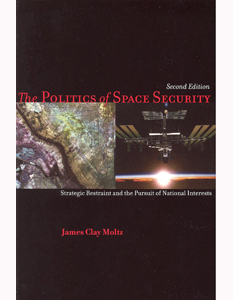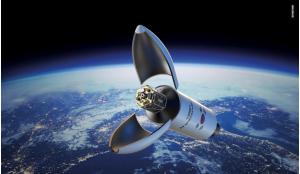It seems to be a fact of life that the more powerful a nation, the more concerned it appears about its own security. This is certainly the case for America, as shown by the many articles, papers, blogs and books (not to mention government organisations) that address national security, and there is no reason why space should be immune from this arguably paranoid introspection.
For some readers, mentioning politics and security in the same title acts as an instant turn-off and the subtitle of this book – “Strategic Restraint and the Pursuit of National Interests” – will do little to dilute that. However, American navel inspection aside, this is important stuff, and the fact that “space” appears in the title alongside all those other off-putting words shows that the orbital domain is ‘up there’ with land, sea and air when it comes to international relations.
The book is divided into three main parts. Usefully for the uninitiated, Part I addresses “explaining space security: concepts and historical comparisons”, while Part II reassesses 20th century space security and Part III considers that of the 21st century. According to the blurb, this new edition provides “analysis of the Obama administration’s space policy and the rise of new actors, including China, India and Iran”. This is a slightly strange way of characterising these nations, as surely they were already significant “actors” when the book’s first edition was published in 2008, but then America is often slow to recognise competitors.
Written by an academic, it is a scholarly analysis with reference notes at the foot of almost every page and a massive 25-page index. That said, it is remarkably readable and, despite having to cope with terms such as “social interactionism” and “global institutionalism”, political jargon is kept to a minimum. In a sense, its readability is a function of the broad canvas on which the subject is sketched. It uses events, personalities and specific space missions as examples without getting bogged down in minutiae, which moves the story on at a good pace.
“Ultimately”, says the author, “given the destructive powers of modern states and the particular fragility of the space environment, this book argues that there is a compelling logic to the exercise of military restraint by all actors in space…”, a conclusion reached in part because of China’s intentional destruction of an orbiting satellite in 2007, which produced a cloud of dangerous debris. In short, the author appears to prefer multilateral coordination over political and military posturing, or as Winston Churchill once put it, “jaw-jaw” is better than “war-war”.
Mark Williamson, Space Technology Consultant











